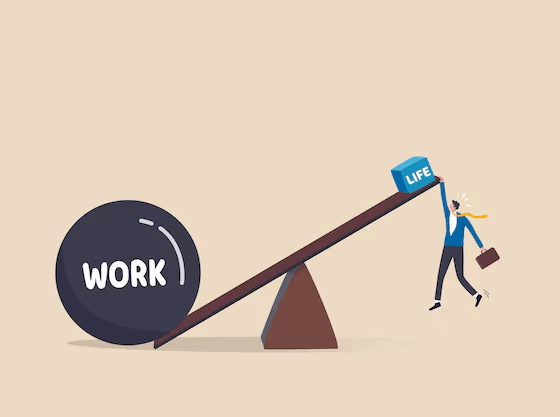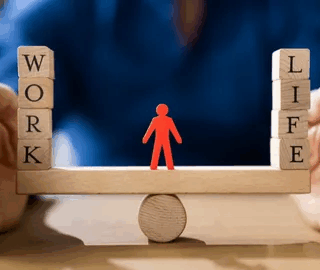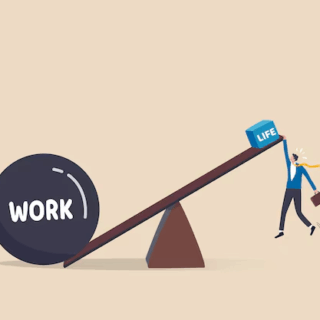How to Create a Balanced Lifestyle: A Guide to Living Better Every Day

In our fast-paced world, creating a balanced lifestyle can feel like chasing a dream that keeps moving further away. Work, family, social obligations, and personal responsibilities often pull us in different directions, leaving us feeling drained and overwhelmed. But the good news is—achieving balance isn’t impossible. It just requires a conscious effort, some healthy habits, and regular check-ins with yourself.
This article will help you understand what a balanced lifestyle is, why it matters, and how you can create one step by step. Let’s get started.
What Does a Balanced Lifestyle Mean?
A balanced lifestyle means giving proper time and attention to all the important areas of your life: physical health, mental wellness, work, relationships, recreation, and personal growth. It’s about finding harmony—not perfection. You don’t need to split your time equally among all areas, but each should get the care and energy it deserves.
It’s not about doing everything all the time. It’s about doing the right things at the right time, in the right amount.
Why Is It Important?
Here are a few key benefits of a balanced lifestyle:
- Better mental health – Less stress, more peace.
- Improved physical health – Consistent exercise and proper sleep.
- Stronger relationships – More time for loved ones.
- Higher productivity – Clear mind, focused energy.
- More happiness – Doing what truly matters brings joy.
10 Simple Steps to Create a Balanced Lifestyle
1. Assess Your Current Life Balance
Before making changes, take a moment to reflect. Are you overworking? Are you neglecting your health or relationships? Make a list of the different areas in your life (e.g., career, health, family, social life, hobbies), and rate your satisfaction with each on a scale of 1 to 10. This exercise shows you where change is most needed.
2. Set Priorities and Goals
Once you know what’s out of balance, identify your top priorities. What matters most to you right now? Maybe it’s your health, maybe it’s spending more time with your kids, or building a side business.
Set SMART goals—Specific, Measurable, Achievable, Relevant, and Time-bound. Instead of saying, “I want to be healthier,” say, “I will walk 30 minutes every day before dinner.”
3. Build a Daily Routine That Works for You
Routine builds structure. You don’t need to wake up at 5 AM to be successful. But you do need a daily rhythm that includes time for:
- Work or study
- Physical activity
- Rest and sleep
- Healthy meals
- Family or social interaction
- Fun or hobbies
- Quiet time or reflection
Stick to a routine for at least two weeks, and see how it improves your energy and focus.
4. Eat a Well-Balanced Diet
Food is fuel. A balanced diet helps your body function at its best. Focus on:
- Whole foods like fruits, vegetables, lean proteins, nuts, and grains.
- Limiting processed foods high in sugar, salt, and unhealthy fats.
- Hydration—Drink enough water daily (usually around 8 glasses).
Try not to skip meals. Eating regular, balanced meals supports both energy and mood.
5. Exercise Regularly
Exercise doesn’t have to mean hours in the gym. Walking, dancing, swimming, yoga, or even cleaning the house counts. Aim for at least 30 minutes of moderate activity 5 days a week.
Exercise boosts your mood, reduces stress, and improves sleep—all essential for balance.
6. Get Enough Sleep
Sleep is often sacrificed in busy lives, but it’s essential. Adults need 7–9 hours of quality sleep each night. Poor sleep affects concentration, emotions, and overall health.
Tips for better sleep:
- Stick to a regular sleep schedule.
- Avoid screens 1 hour before bed.
- Keep your bedroom dark and cool.
7. Practice Mindfulness or Meditation
Your mind needs rest, too. Mindfulness means paying attention to the present moment without judgment. Meditation, deep breathing, or even journaling for 5–10 minutes daily can calm your mind and help you stay grounded.
Benefits include:
- Reduced anxiety
- Improved focus
- Emotional balance
8. Maintain Healthy Relationships
A balanced lifestyle includes strong emotional connections. Spend time with friends and family who uplift you. Let go of toxic relationships that drain your energy.
- Talk and listen without distractions.
- Celebrate each other’s wins.
- Offer support when needed.
Connection brings joy and meaning to life.
9. Learn to Say “No”
Overcommitting leads to burnout. Say “no” to things that don’t align with your values or goals. You’re not being rude—you’re setting boundaries.
Ask yourself: Does this bring me closer to balance or pull me further away?
10. Make Time for Fun and Rest
Life isn’t only about work or responsibilities. Make time to enjoy your favorite activities—reading, painting, gaming, gardening, or watching movies.
And don’t feel guilty for relaxing. Rest is not a reward; it’s a necessity.
Realistic Tips to Stay on Track
- Start small. Don’t change everything overnight. Begin with one or two areas.
- Track progress. Use journals, apps, or calendars to stay consistent.
- Be flexible. Life will throw surprises. Adjust your plan as needed.
- Celebrate wins. Acknowledge your efforts and successes, no matter how small.
Final Thoughts
Creating a balanced lifestyle isn’t a one-time event. It’s an ongoing journey. You’ll have good days and off days—and that’s okay. What matters is that you keep checking in with yourself and making choices that support your well-being.
When you take care of your body, mind, and heart—you live better, feel better, and give your best to the world around you.
FAQs About Creating a Balanced Lifestyle
1. How long does it take to create a balanced lifestyle?
It varies for everyone. Small changes can bring results in a few weeks, but long-term balance is an ongoing journey. Be patient and stay consistent.
2. What are the biggest mistakes people make when trying to live a balanced life?
Trying to change too much too quickly, not setting boundaries, and neglecting self-care are common mistakes. Start slow and be realistic.
3. Can I have a balanced lifestyle if I work long hours?
Yes. Even small adjustments—like a 10-minute walk, a healthy lunch, or screen-free evenings—can help you feel more balanced. It’s about quality, not just quantity.
4. How do I know if my life is out of balance?
Signs include constant stress, poor sleep, irritability, lack of motivation, and health problems. If you feel like you’re just surviving instead of thriving, it’s time for a change.
5. Do I need to follow a strict routine every day?
Not necessarily. Structure is helpful, but flexibility is key. A routine should support your life—not control it. Adapt as needed while staying true to your goals.







